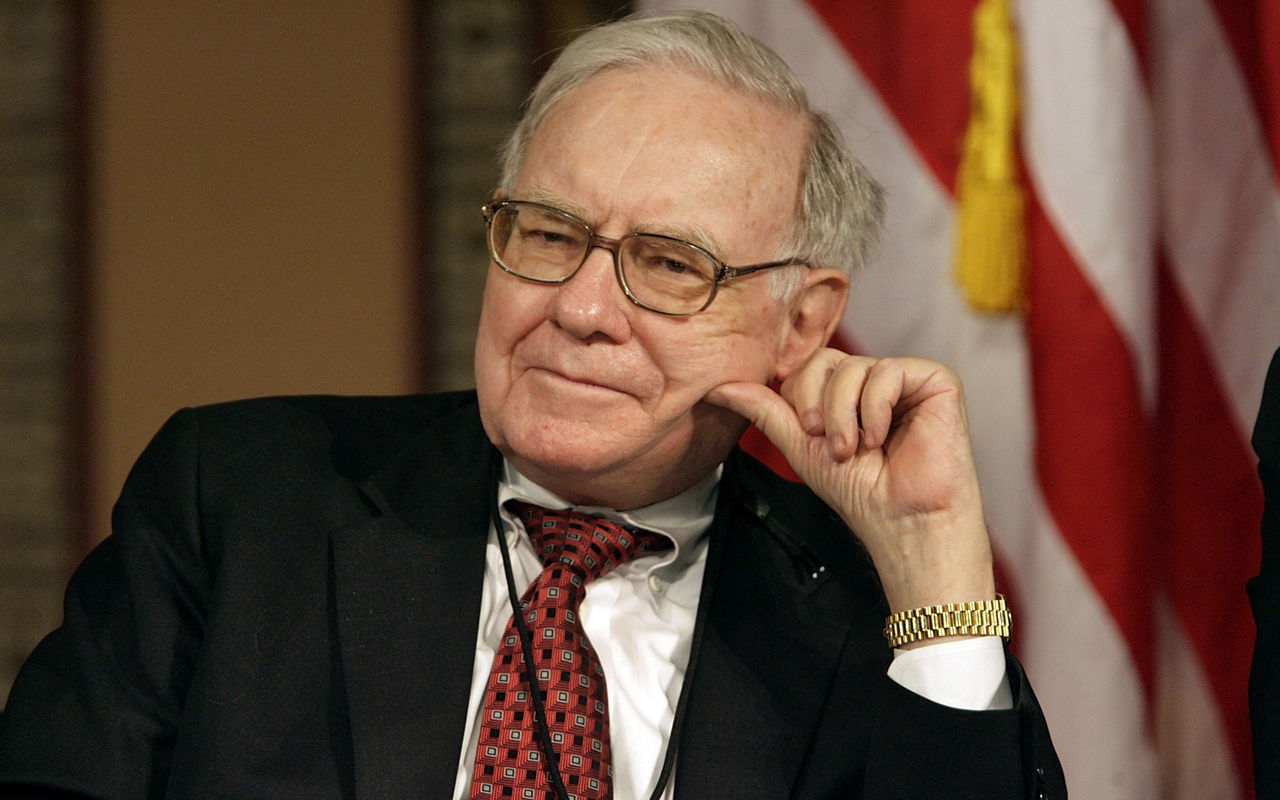Investors, Stay Sane in a Crazy Market
Be sure to have a complete investing strategy, including your plan to sell, in place before any mayhem occurs.

Profit and prosper with the best of Kiplinger's advice on investing, taxes, retirement, personal finance and much more. Delivered daily. Enter your email in the box and click Sign Me Up.
You are now subscribed
Your newsletter sign-up was successful
Want to add more newsletters?

Delivered daily
Kiplinger Today
Profit and prosper with the best of Kiplinger's advice on investing, taxes, retirement, personal finance and much more delivered daily. Smart money moves start here.

Sent five days a week
Kiplinger A Step Ahead
Get practical help to make better financial decisions in your everyday life, from spending to savings on top deals.

Delivered daily
Kiplinger Closing Bell
Get today's biggest financial and investing headlines delivered to your inbox every day the U.S. stock market is open.

Sent twice a week
Kiplinger Adviser Intel
Financial pros across the country share best practices and fresh tactics to preserve and grow your wealth.

Delivered weekly
Kiplinger Tax Tips
Trim your federal and state tax bills with practical tax-planning and tax-cutting strategies.

Sent twice a week
Kiplinger Retirement Tips
Your twice-a-week guide to planning and enjoying a financially secure and richly rewarding retirement

Sent bimonthly.
Kiplinger Adviser Angle
Insights for advisers, wealth managers and other financial professionals.

Sent twice a week
Kiplinger Investing Weekly
Your twice-a-week roundup of promising stocks, funds, companies and industries you should consider, ones you should avoid, and why.

Sent weekly for six weeks
Kiplinger Invest for Retirement
Your step-by-step six-part series on how to invest for retirement, from devising a successful strategy to exactly which investments to choose.
Volatility is back, posing perhaps the biggest challenge stock investors have faced in this six-year bull run: How do you stay sane in a crazy market? In March alone, the Dow Jones industrial average seesawed wildly, closing up or (more often) down more than 100 points on 16 of 22 trading days. The jumpiness is all the more jarring because of the remarkably smooth uptrend we enjoyed previously. Standard & Poor’s 500-stock index has gone 41 months without a decline of 10% or more (the classic threshold for a market correction). Since World War II, corrections have come every 18 months, on average, according to S&P Capital IQ.
So what’s the harm in a little volatility now? Nothing, inherently. As Jay Mooreland, a financial planner who writes The Emotional Investor blog, puts it: “Volatility doesn’t cause losses. It’s investors’ reaction to volatility that causes losses.” And those reactions are deeply rooted in the biases and behavioral traps that are part of human nature. William Martin, a financial psychologist at Aequus Wealth Management Resources, in Chicago, highlights some biases that often surface during times of market volatility:
Confirmation Bias
When we’re uncomfortable, we seek support, often from information that affirms our point of view. If you’re convinced the market is going to you-know-where in the proverbial handbasket, you’ll seek out like-minded opinions, turning a blind eye to other scenarios.
From just $107.88 $24.99 for Kiplinger Personal Finance
Become a smarter, better informed investor. Subscribe from just $107.88 $24.99, plus get up to 4 Special Issues

Sign up for Kiplinger’s Free Newsletters
Profit and prosper with the best of expert advice on investing, taxes, retirement, personal finance and more - straight to your e-mail.
Profit and prosper with the best of expert advice - straight to your e-mail.
Herd Mentality
If we’re unsure of ourselves, we’ll follow the crowd. That’s unfortunately why investors buy high and sell low—loading up on shares when everyone else is buying and dumping holdings when most people are selling.
Fear of Regret
No one wants to feel bad because of a poor choice, whether it’s buying the wrong investment, holding it too long or selling it too early. This regret avoidance can be exacerbated, says Martin, by the endowment effect, which can cause us to put a higher value on investments than they’re worth.
Loss Aversion
Booking a loss is never easy, but holding on to hope that you’ll eventually get even can cause some investors to ride losing propositions down to zero.
How to Cope
Buffeted by such biases, investors tend to fall into two camps during periods of market volatility, says Michael Liersch, director of the behavioral finance unit at Merrill Lynch Wealth Management. “Some put their heads in the sand and ignore everything. Others overreact.” Liersch recommends that investors try to strike a balance between the two.
One way to do so is to stop focusing on a benchmark. (Turn off the TV, and don’t obsess over your account statements!) Instead, be mindful of what the money you’re investing is meant for and how it’s invested to meet those personally meaningful goals. Are you investing for retirement income? Educational funds? A down payment on a house? Different goals dictate different strategies. Crafting an investment policy statement—and an exit strategy—before the going gets rough helps take the emotion out of buying, selling and rebalancing decisions.
Similarly, casting a wide net when seeking information and investment advice can help make sure you’re not unduly influenced, including by your own opinion. While you’re at it, make an effort to seek out someone who you know will present the contrarian point of view. That, along with the rest of these strategies, can keep you from diving off the cliff with the herd.
Profit and prosper with the best of Kiplinger's advice on investing, taxes, retirement, personal finance and much more. Delivered daily. Enter your email in the box and click Sign Me Up.

Anne Kates Smith brings Wall Street to Main Street, with decades of experience covering investments and personal finance for real people trying to navigate fast-changing markets, preserve financial security or plan for the future. She oversees the magazine's investing coverage, authors Kiplinger’s biannual stock-market outlooks and writes the "Your Mind and Your Money" column, a take on behavioral finance and how investors can get out of their own way. Smith began her journalism career as a writer and columnist for USA Today. Prior to joining Kiplinger, she was a senior editor at U.S. News & World Report and a contributing columnist for TheStreet. Smith is a graduate of St. John's College in Annapolis, Md., the third-oldest college in America.
-
 Over 65? Here's What the New $6K 'Senior Deduction' Means for Medicare IRMAA Costs
Over 65? Here's What the New $6K 'Senior Deduction' Means for Medicare IRMAA CostsTax Breaks A new deduction for people over age 65 has some thinking about Medicare premiums and MAGI strategy.
-
 U.S. Congress to End Emergency Tax Bill Over $6,000 Senior Deduction and Tip, Overtime Tax Breaks in D.C.
U.S. Congress to End Emergency Tax Bill Over $6,000 Senior Deduction and Tip, Overtime Tax Breaks in D.C.Tax Law Here's how taxpayers can amend their already-filed income tax returns amid a potentially looming legal battle on Capitol Hill.
-
 5 Investing Rules You Can Steal From Millennials
5 Investing Rules You Can Steal From MillennialsMillennials are reshaping the investing landscape. See how the tech-savvy generation is approaching capital markets – and the strategies you can take from them.
-
 How I'm Going to Invest My Mega Millions Lottery Jackpot
How I'm Going to Invest My Mega Millions Lottery JackpotThe odds of winning the Mega Millions lottery are effectively zero, but here's how I'm investing my fortune should I hit the jackpot.
-
 Four Random Facts and Thoughts About Warren Buffett
Four Random Facts and Thoughts About Warren BuffettIf I love Warren Buffett so much why don't I just marry him?
-
 Investing in Gold Is Dumb
Investing in Gold Is DumbStocks are better than gold for both generating wealth and offering protection against inflation.
-
 What's So Scary About a Mega-Cap Tech Bull Market?
What's So Scary About a Mega-Cap Tech Bull Market?Bears say the market can't keep rallying when only five mega-cap tech stocks are driving returns, but history suggests otherwise.
-
 We Are Not in a Bull Market
We Are Not in a Bull MarketIt takes more than a 20% gain off the low to proclaim the beginning of a new bull market.
-
 Why I Don't Buy Stocks
Why I Don't Buy StocksIt's nearly impossible to beat the market – but it is cheap and easy to match it.
-
 Amy Domini on the Secrets of Sustainable Investing
Amy Domini on the Secrets of Sustainable InvestingESG An ESG pioneer says finding good corporate citizens is the best way to make money.
-
 New Ways to Invest in Bitcoin
New Ways to Invest in BitcoinBecoming an Investor ProShares Bitcoin Strategy and other ETFs offer an easier way to gain bitcoin exposure than buying the actual cryptocurrency.